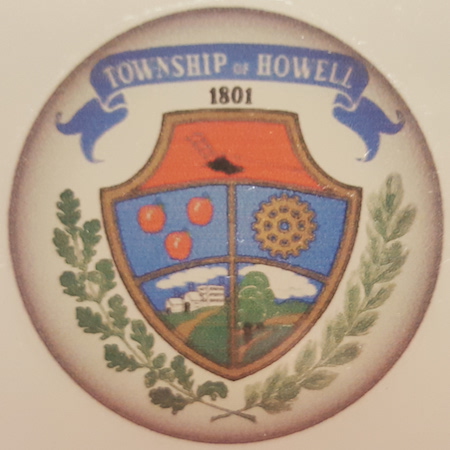HOWELL – The Howell Township Council has passed a resolution opposing two bills that have been introduced in the state Legislature. The bills concern the state Open Public Meetings Act (OPMA) and the state Open Public Records Act (OPRA).
A resolution that was passed by the Howell council on Oct. 17 opposes Senate bill S-1045. The bill makes various changes to the law addressing meetings of public bodies to provide the public with greater access to meetings and information about meetings.
The council also opposes Senate bill S-1046, which revises OPRA. The bill expands and clarifies various definitions and makes changes to the duties of records custodians and the Government Records Council. It modifies the mediation process, making the Office of Dispute Settlement in the Office of the Public Defender available to mediate disputes, changes the penalty provisions, and it modifies access to the courts.
S-1046 specifies that fines imposed in regard to a public records decision cannot be paid out of public funds. In addition, the bill requires the state to create a public finance website and establish the New Jersey Local Public Finance Internet Website Development Program to provide advice and technical assistance to units of local government that elect to create a searchable local public finance Internet website.
The council’s resolution states that S-1045 and S-1046 “are unnecessary, unpopular with the public and would result in significant financial and administrative burdens on municipalities.”
Officials said the bills “fail to adequately protect taxpayers, municipalities and, especially, municipal clerks from abusive, harassing and purposefully confrontational individuals who submit voluminous requests for no legitimate reason.”
The resolution states that “the bills would impose a financial burden on municipalities that would not be offset by a revenue source other than the property tax, making the bills unfunded mandates prohibited by the New Jersey Constitution” and adds, “some municipalities are more equipped than others to meet the burdens that would be imposed by (the bills), however, without assistance of any kind from the state or the courts, every municipality would be on its own to meet the myriad new requirements of the law.”
Howell’s elected officials suggested that new legislation be drafted to modernize OPRA and OPMA “while providing municipalities and clerks with the resources to effectuate these changes for the benefit of the public.”
Councilman Bob Walsh supported the passage of the resolution by the governing body, but said the fate of S-1045 and S-1046 will ultimately be decided by state legislators.
“It really does not make a difference what we say. Trenton is going to do what (they) feel like anyway,” Walsh said.
In a press release, the New Jersey Foundation for Open Government (NJFOG) said it believes legislation such as S-1045 and S-1046 runs counter to public interest.
“Local governing bodies are adopting a resolution opposing legislation that would modernize and strengthen OPMA and OPRA. While offering familiar excuses, the truth is that most government officials are not interested in expanding public oversight of their activities. Importantly, the resolution, which is nearly uniform from town to town, contains incorrect statements about the reform legislation,” NJFOG said.
NJFOG Secretary Walter Luers called the local resolutions “zombie resolutions.”
“What I mean by that is that the form of the resolutions is making the rounds in municipalities without any material changes or apparent thought. Rather than attempt to engage interested parties (such as Sen. Loretta Weinberg, one of the bills’ primary sponsors), the backers of the resolutions are trying to create fake uproar regarding these amendments, which by the way have been around in one form or another since 2012.
“Not only that, but over time the stakeholders (including the Municipal Clerks Association and the League of Municipalities) have been engaged in negotiations regarding the amendments, for years. So this is fake outrage,” Luers said.
Luers said the OPRA amendment would actually be a “powerful tool” for municipalities.
“The OPRA amendment itself would actually give municipalities a very powerful tool that I anticipate will be used and abused to intimidate records requestors into not filing OPRA requests. Under the proposed OPRA amendment, municipalities would be permitted to sue requestors for what I call ‘abuse of OPRA.’ The mere threat or possibility of such a lawsuit will be sufficient to chill some OPRA requestors. But more to the point, this tool is in the amendment as a boon (or bone) to public agencies, but they are not biting,” Luers said.

